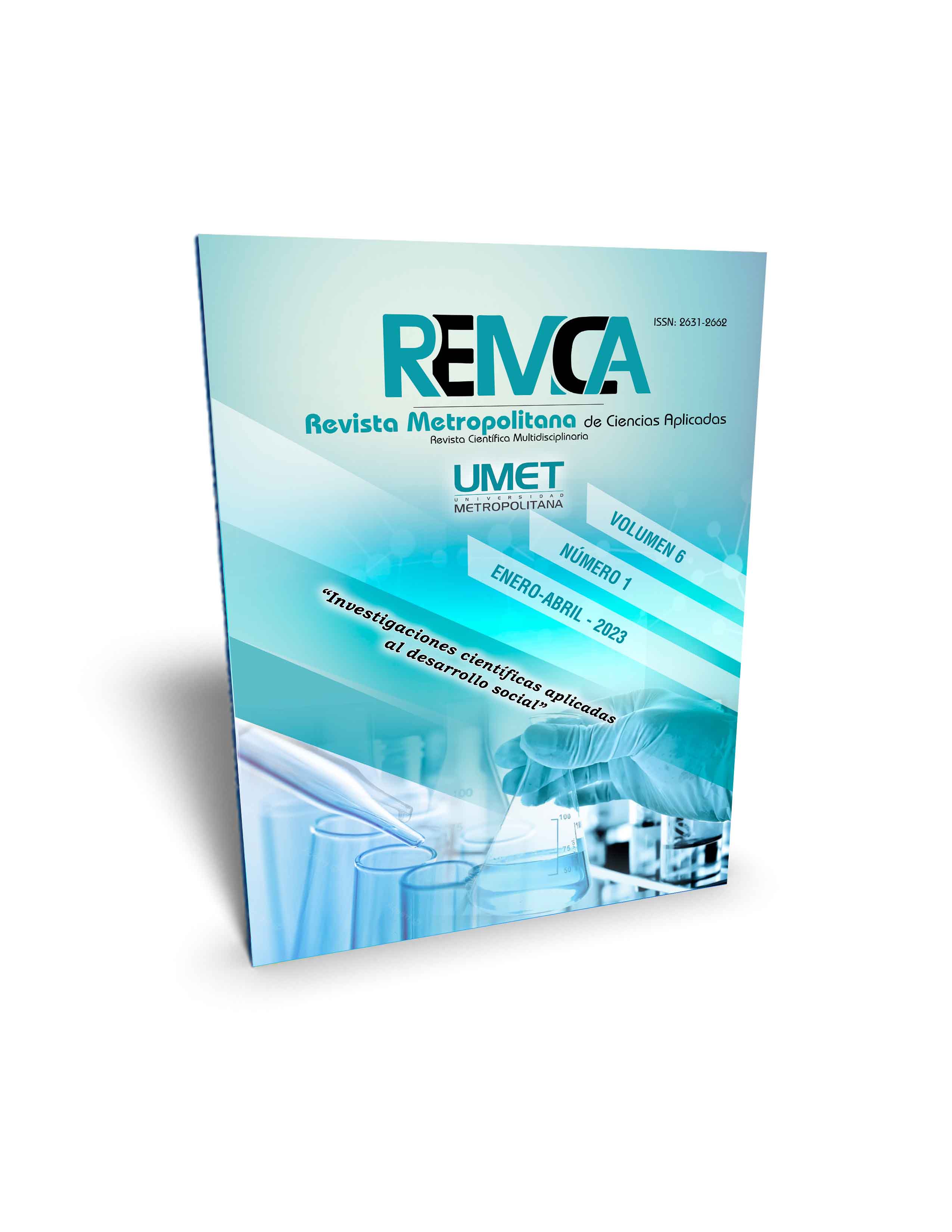Technological resources for the improvement of didactic innovation management among Teachers at "Los Andes" School
DOI:
https://doi.org/10.62452/azzktn02Keywords:
Didactic innovation, innovation, learning, teaching managementAbstract
The classroom teacher's management to innovate the teaching process becomes a fundamental angle of the professional pedagogical activity in order to achieve students’ learning. Technology resources are essential to accomplish this purpose. However, this research was carried out under a study with a mixed sequential and descriptive approach, it showed serious difficulties in key aspects of didactic innovation at Los Andes School. Observation to classes and open interviews to teachers and managers were executed, the lacking teacher management was evidenced in the rare systematicity in the application of technological resources during the organization of their activities, which are little different from the usual teaching methodologies normally applied to their students. Likewise, it was also revealed by the use of classical assessment systems based only on the students' knowledge. According to the results, a proposal was developed which selects innovative technological resources that help teachers to improve their teaching process by areas of knowledge.
Downloads
References
Ayala, L. F. (2020). Creatividad e Inteligencias Múltiples, estudio realizado a estudiantes de la carrera de Biología Marina. Runae, (5), 61 - 70.
Barraza, A., & Cárdenas, T. (2015). Proyectos de Innovación Didáctica Para la mejora de la Práctica Docente. Instituto Universitario Anglo Español.
Cuenca, R. (2019). Innovación y cambio en las organizaciones educativas. Los docentes como protagonistas. Líderes compartir, 17.
Domínguez, M. C., Medina, A., & Sánchez, C. (2011). La Innovación en el aula: referente para el diseño y desarrollo curricular. Perspectiva Educacional, Formación de Profesores, 50(1), 61-86.
Fernández, E. (2020). Perpectivas y retos de innovación educativa en España. Claves para la construcción de un sistema educativo innovador . Perspectivas y retos de la innovación educativa en España, 15.
Fuentes, X. V. (2011). Reflexión en torno a la gestión de aula y a la mejora en los procesos de enseñanza y aprendizajes. Revista Iberoamericana de Educación, 7.
Fullan, M. (2016). El nuevo significado del cambio educacional. Teachers College Press.
García, C. M., Ruíz, C. M., & Noche, B. G. (2010). Innovación Educativa en España desde el punto de vista de sus protagonistas. Revista de currículo y formación del profesorado, 14(1).
García, F., Juárez, S., & Salgado, L. (2018). Gestión escolar y calidad educativa. Revista Cubana de Educación Superior, 37(2).
García, L. M., & Martija, A. A. (2006). ¿Qué entendemos por innovación educativa? A propósito del desarrollo curricular. MEN.
González, C., & Cruzat, M. (2019). Innovación educativa: La experiencia de las carreras pedagógicas en la Universidad de Los Lagos, Chile. Educación, 28(55), 103-122.
Guerrero Salazar, C. V., & Prieto López, Y. (2020). Características de un Docente Innovador: Siete Claves para Una Buena Práctica Docente. Revista Scientific, 5(18), 254–275.
Lo Priore, I., & Anzola, D. (2010). Caracterización de experiencias didácticas innovadoras. Educere, 14(48), 85-97.
Martín-Crespo, M C., & Salamanca, A.B. (2007). El muestreo en la investigación cualitativa. Nure Investigación, 27, 1-4.
Martínez, M. J., Cabezas, I. L., y Soler, I. R. (2018). La calidad e innovación educativa en la formación continua docente: un estudio cualitativo en dos centros educativos. Revista Iberoamericana de Educación, 77(1), 13-34.
Medel, C., Díaz, A., Trujillo, S., & Delgado, A. (2021). Educación, innovación y nueva normalidad. Asociación Normalista de Docentes Investigadores.
Muñoz-Repiso, A. &., Tejedor, F. (2018). Value of collaborative work in teaching and learning processes in schools with a high level of ICT. Estudios sobre Educación, 34, 155–175.
Nogales Sancho, F. V. (2020). La importancia de las estrategias de aula. Quaderns digitals.net, 16.
Oviedo, P. E. (2012). Innovar la enseñanza. Estrategias derivadas de la investigación. En, P. E. Oviedo (Ed.). Un nuevo ecenario de la didáctica. (pp. 14-15). Kimpres Universidad de la Salle.
Pérez, M. V. (2018). Perspectivas de la Innovación en la educación. En. N. Suárez et. al., Investigación e Innovación en el Ámbito Educativo. (pp. 123-135). Universidad Tecnológica Indoamérica.
Rivera, M. (2018). La innovación en la escuela – Los 10 elementos clave para innovar. https://observatorio.tec.mx/edu-news/innovacion-educativa-los-10-elementos-clave-para-innovar/
Sánchez Reyes, C. (2019). Estrategias innovadoras en la planificación curricular, un reto de la educación contemporánea. ReHuSo: Revista de Ciencias Humanísticas y Sociales, 4(3), 39-47.
Villalta, M. A., Martinic, S., & Guzmán, M. A. (2011). Elementos de la interacción didáctica en la sala de clase que contribuyen al aprendizaje en contexto social vulnerable. Revista Mexicana de Investigación Educativa, 16(51), 1137-1158.
Downloads
Published
Issue
Section
License
Copyright (c) 2023 Zoila Alexandra Mosquera-Esparza, María Elisabeth Mosquera-Esparza, Noemí Suárez-Monzón (Autor/a)

This work is licensed under a Creative Commons Attribution-NonCommercial-ShareAlike 4.0 International License.
Authors who publish in Revista Metropolitana de Ciencias Aplicadas (REMCA), agree to the following terms:
1. Copyright
Authors retain unrestricted copyright to their work. Authors grant the journal the right of first publication. To this end, they assign the journal non-exclusive exploitation rights (reproduction, distribution, public communication, and transformation). Authors may enter into additional agreements for the non-exclusive distribution of the version of the work published in the journal, provided that acknowledgment of its initial publication in this journal is given.
© The authors.
2. License
The articles are published in the journal under the Creative Commons Attribution-NonCommercial-ShareAlike 4.0 International License (CC BY-NC-SA 4.0). The terms can be found at: https://creativecommons.org/licenses/by-nc-sa/4.0/deed.en
This license allows:
- Sharing: Copying and redistributing the material in any medium or format.
- Adapting: Remixing, transforming, and building upon the material.
Under the following terms:
- Attribution: You must give appropriate credit, provide a link to the license, and indicate if any changes were made. You may do this in any reasonable manner, but not in any way that suggests the licensor endorses or sponsors your use.
- NonCommercial: You may not use the material for commercial purposes.
- ShareAlike: If you remix, transform, or build upon the material, you must distribute your creation under the same license as the original work.
There are no additional restrictions. You may not apply legal terms or technological measures that legally restrict others from doing anything the license permits.




